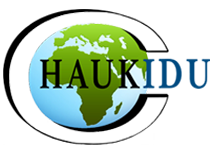This association, CHAUKIDU, has been formed after many years of appeals, preparations, and many debates amongst lovers of Swahili from various parts of the world, all of who wanted to see the formation of an association devoted to cooperating with other associations and institutions so as to propel Swahili to higher levels of recognition and growth in and outside Africa. CHAUKIDU was launched and had its constitution promulgated in a meeting held at the University of Wisconsin-Madison on April 26, 2012.
In accordance with its constitution, CHAUKIDU will be headquartered for now at the University of Georgia, in the United States, the workstation of the current President, until the expiry of her term in office. The Association was formed with the principal objective of catalyzing the speedy development of Swahili language.
The Chaukidu Vision
To promote Swahili language around the world and to have a connection with East Africa, Swahili language and culture. To promote collaboration among language stakeholders across the world.
The Chaukidu Mission
- To facilitate the development of Swahili in all spheres, where the language is used or may be used, and to enhance and expand communication on matters related to Swahili, including teaching, research, writing, mass media, books, journals, publishing, organizing study abroad trips in East Africa, etc.
- To disseminate research information through a newsletter, journal, and Internet technology regarding various aspects of Swahili language.
- To bring the members together for purposes of exchanging ideas and experiences on various issues related to Swahili language (e.g. improvement of pedagogical approaches, broadcasting, research, and writing, etc.) by organizing annual meetings, seminars, special conferences, and through the Internet.
- To teach the public about the importance of being proud of, developing and dignifying Swahili language.
- To advice and impress upon governments of countries where Swahili is spoken to recognize the value inherent in this language resource so that they can do all they can to formulate appropriate policies that would ensure its development for the social, political, economic, and cultural prosperity of the people.
